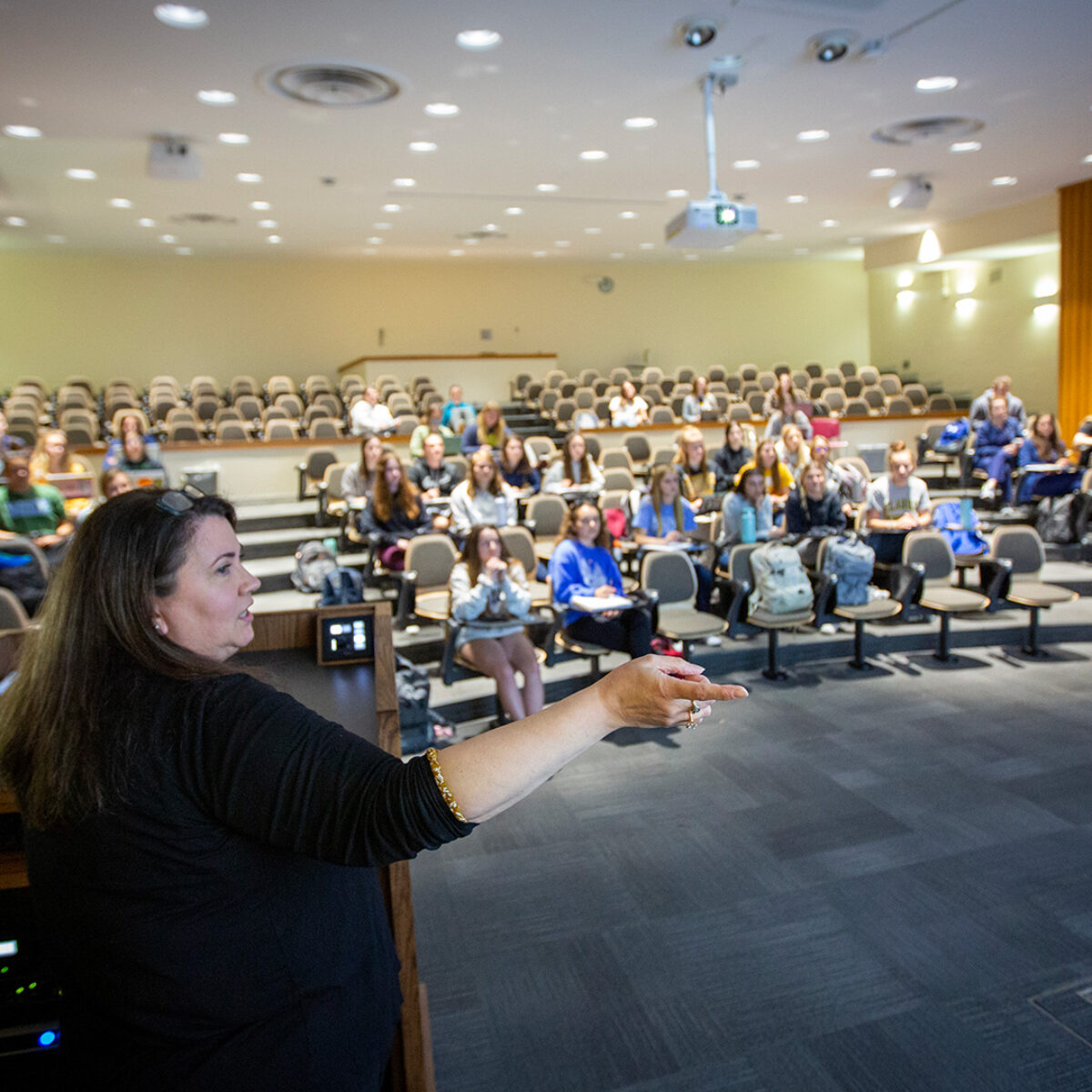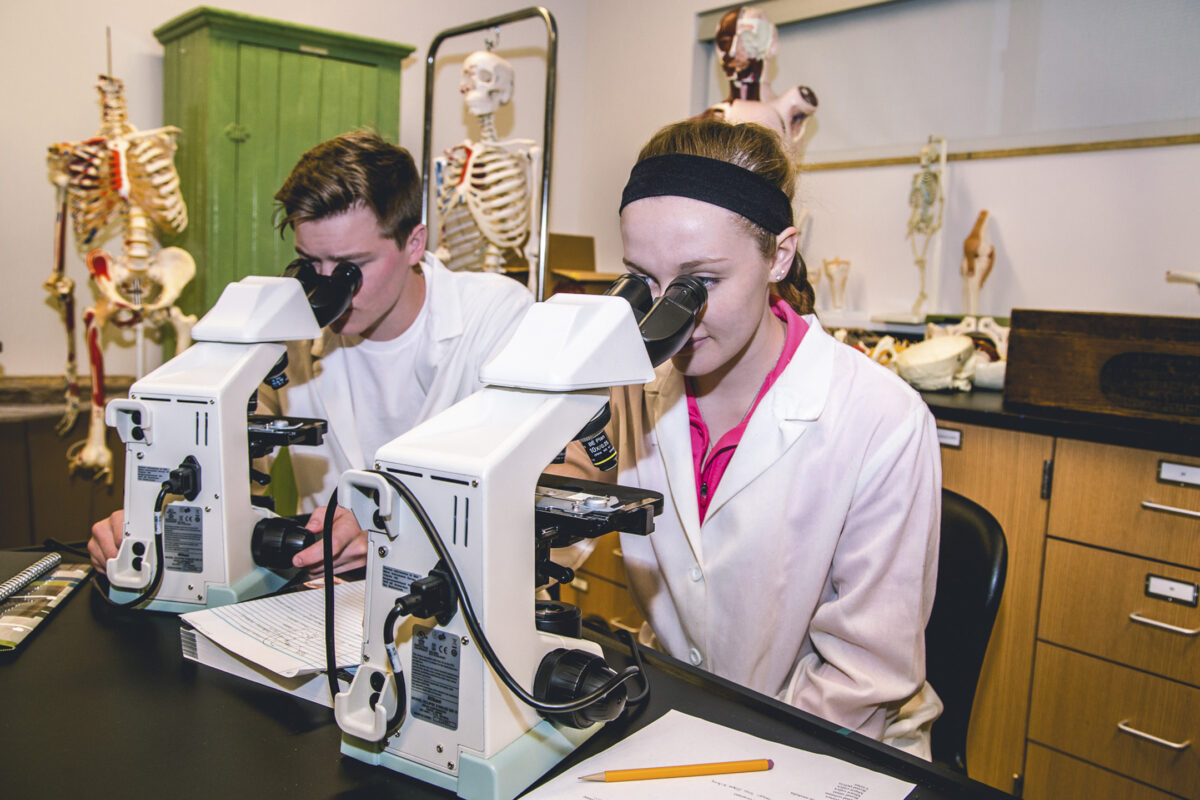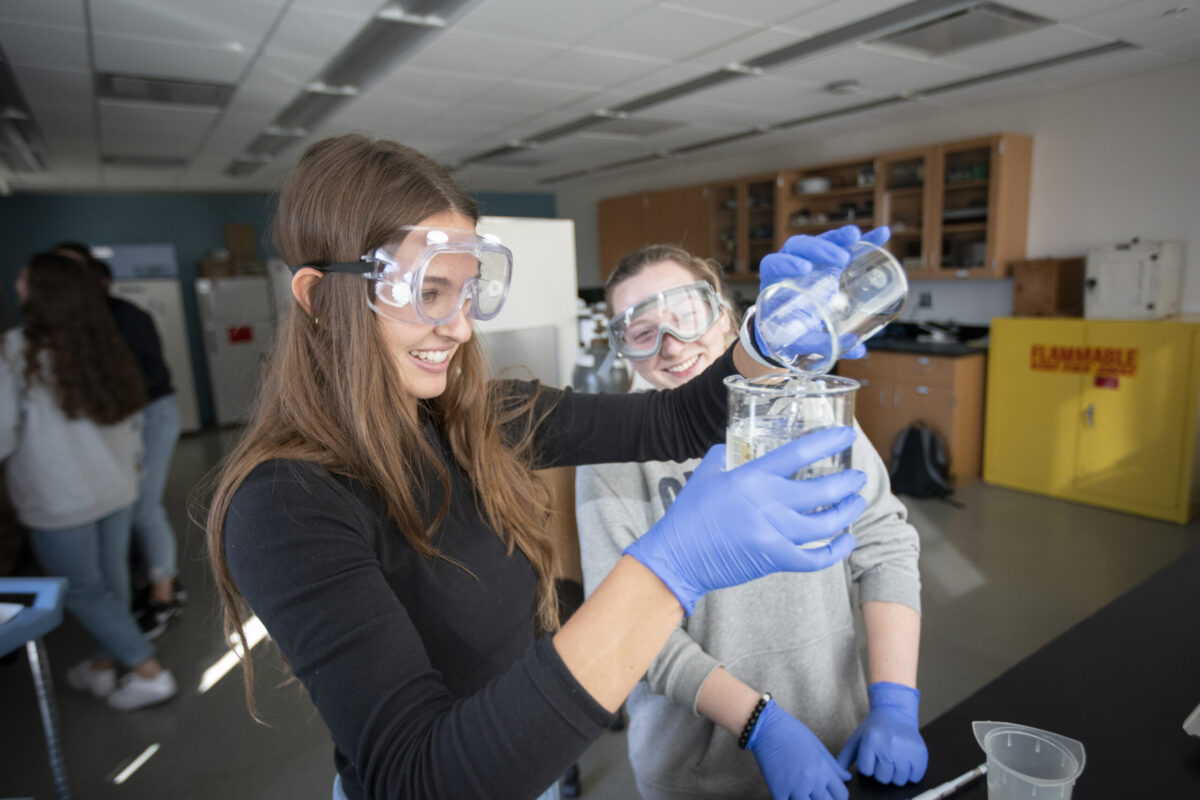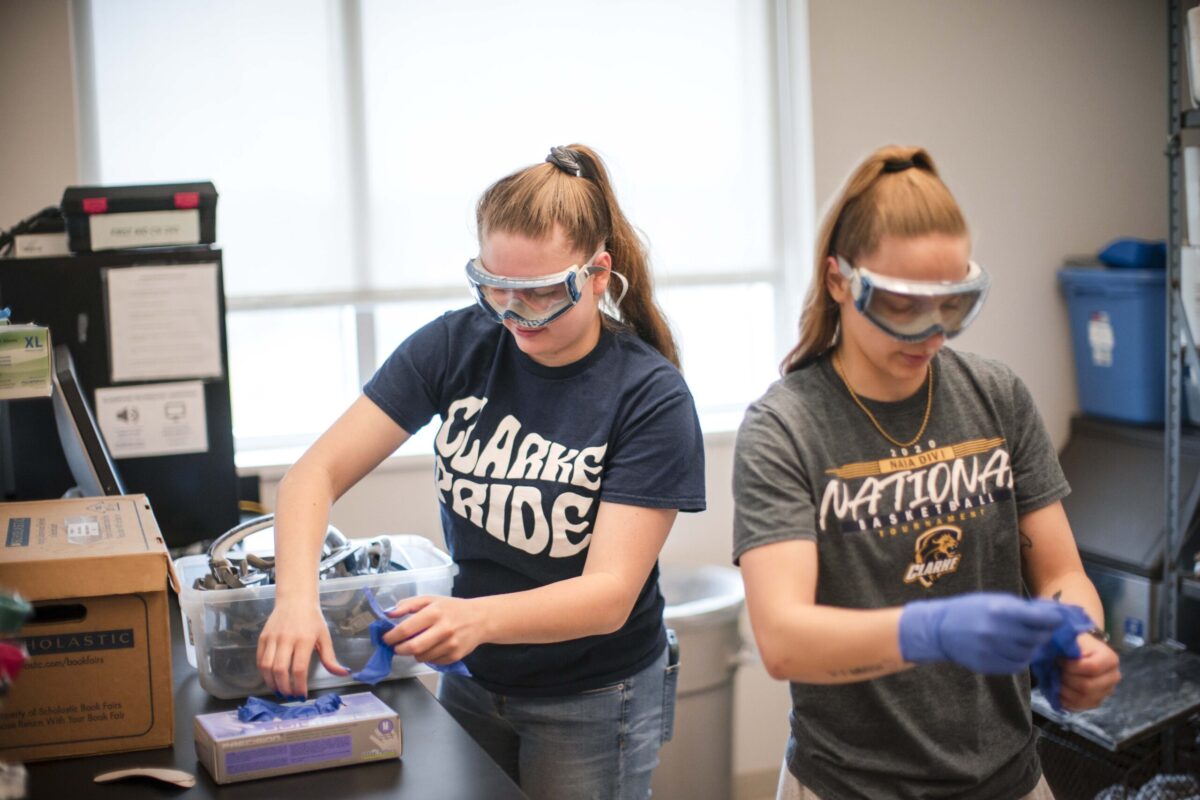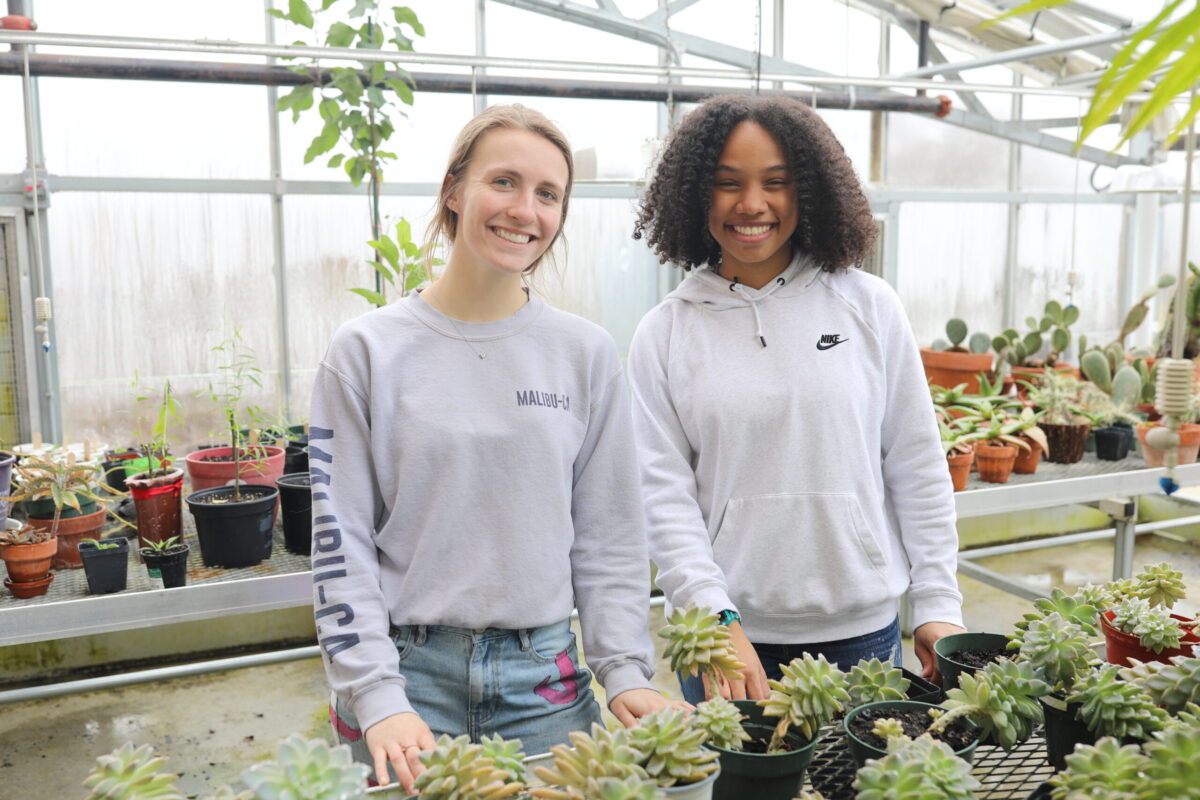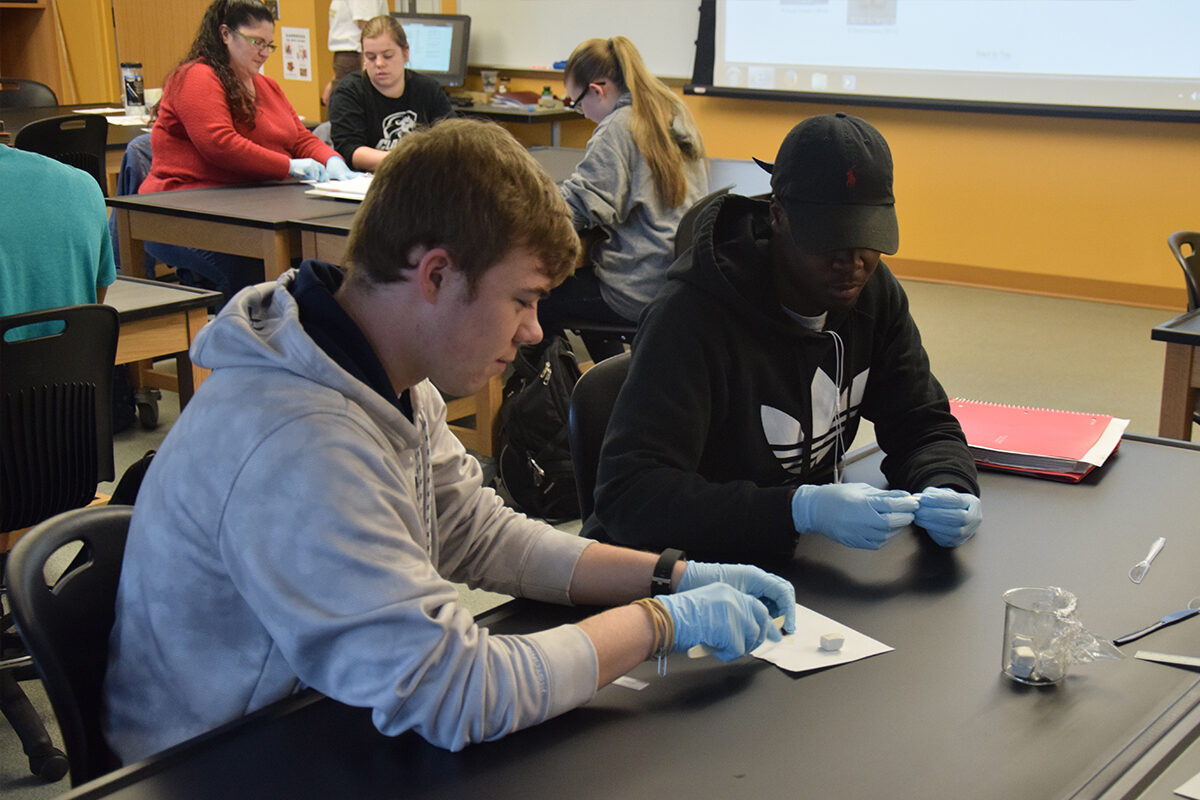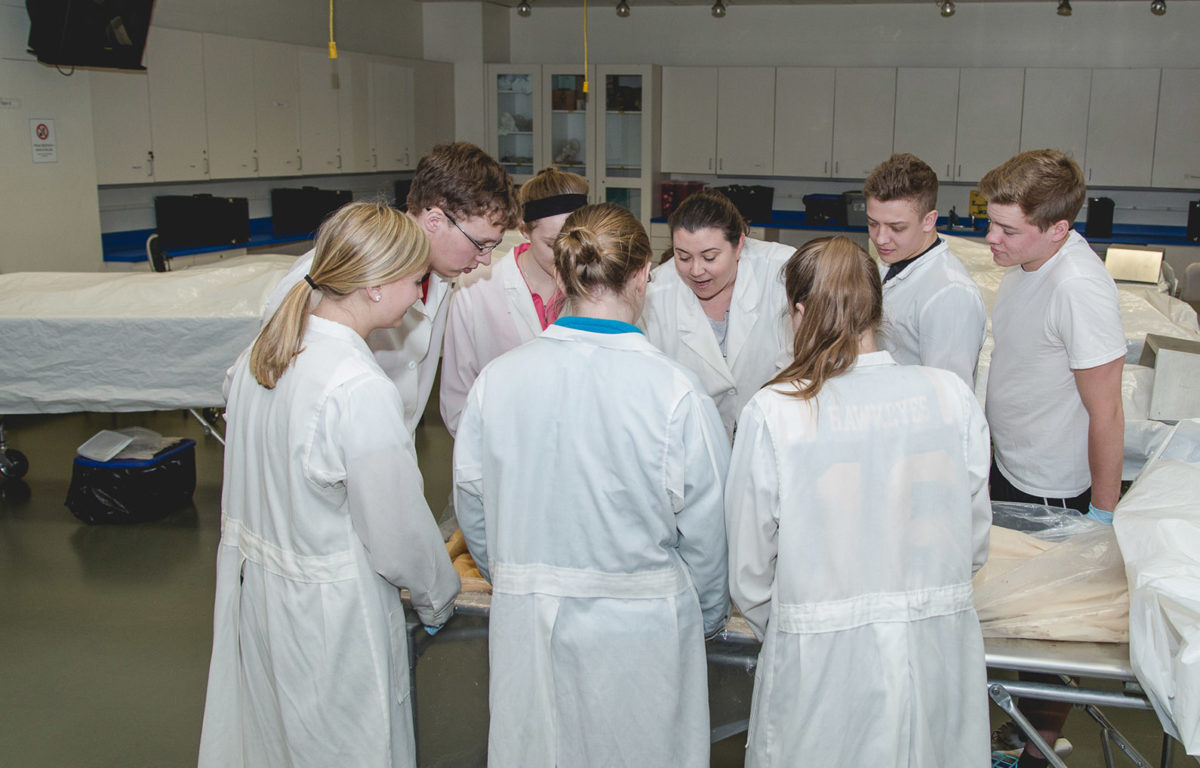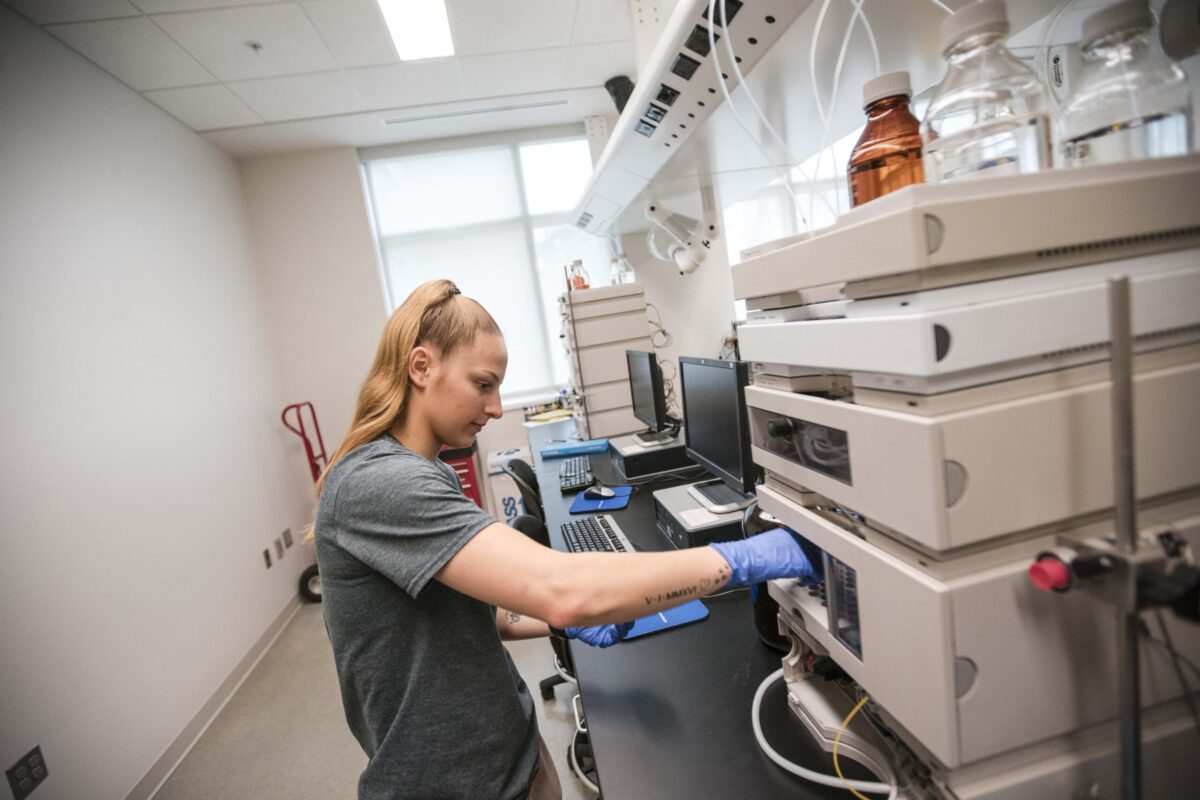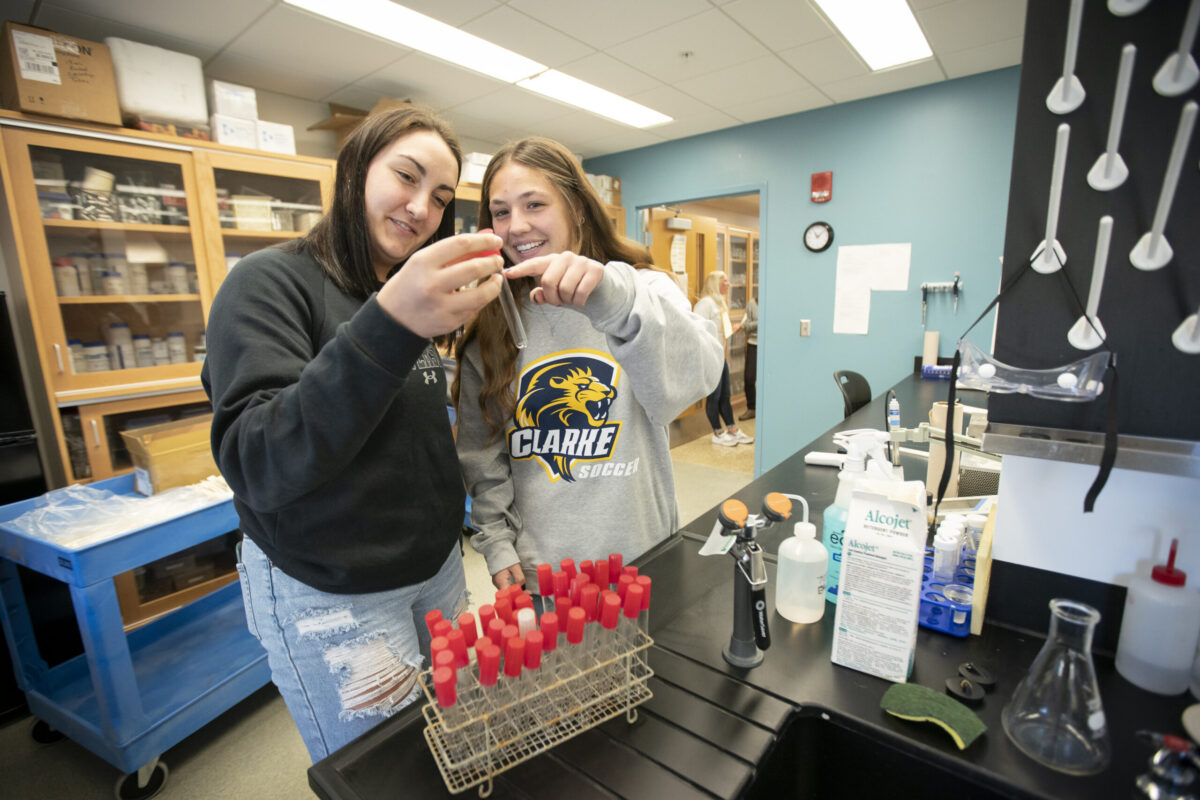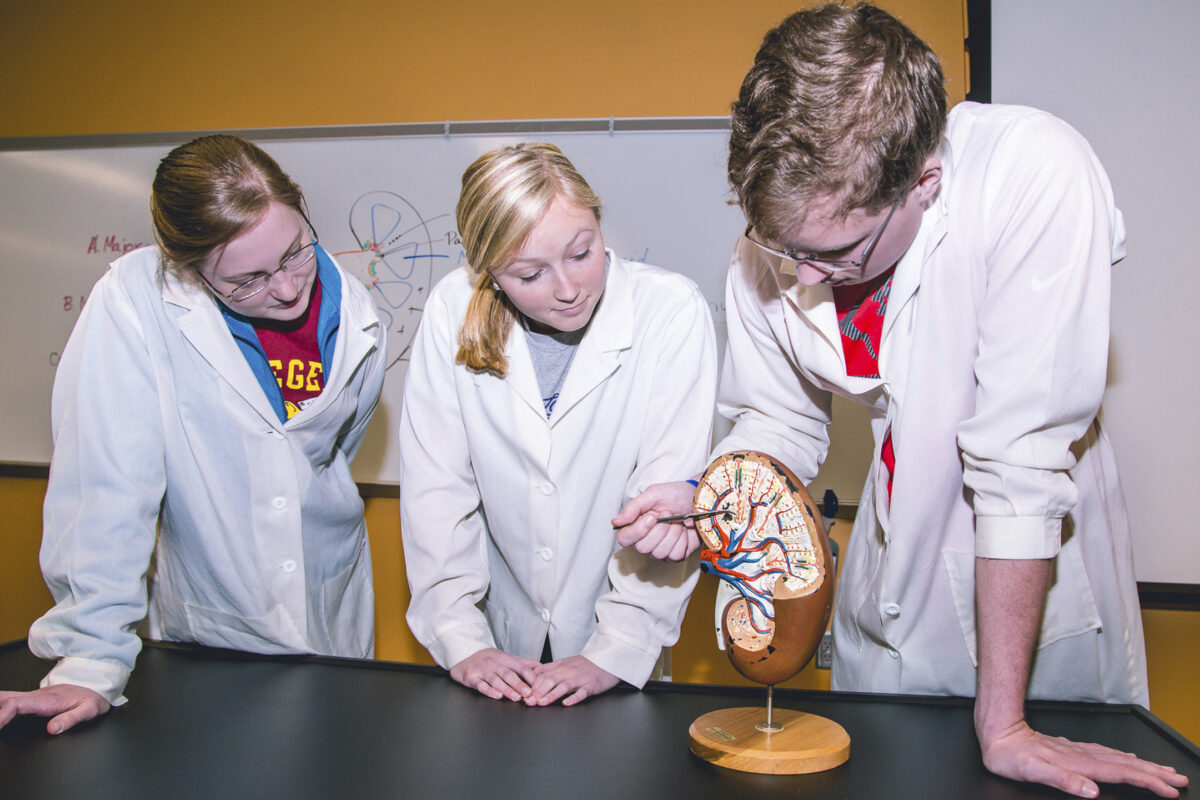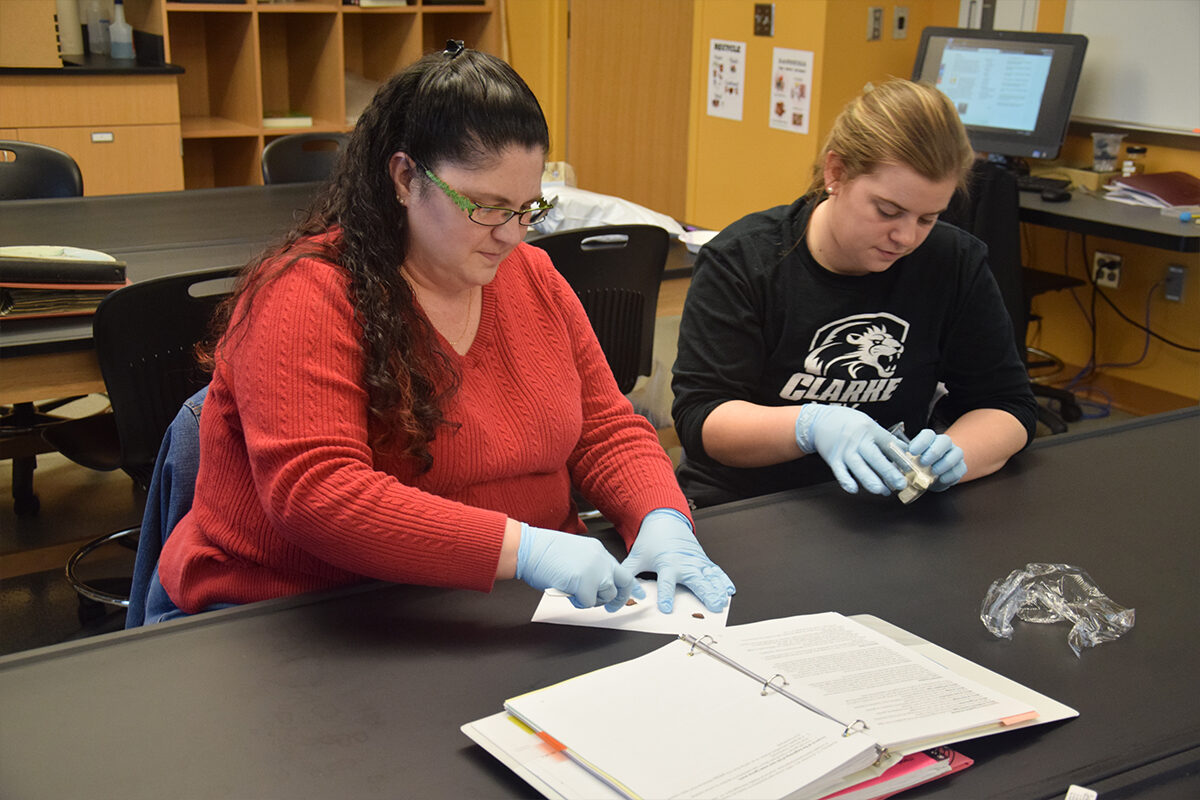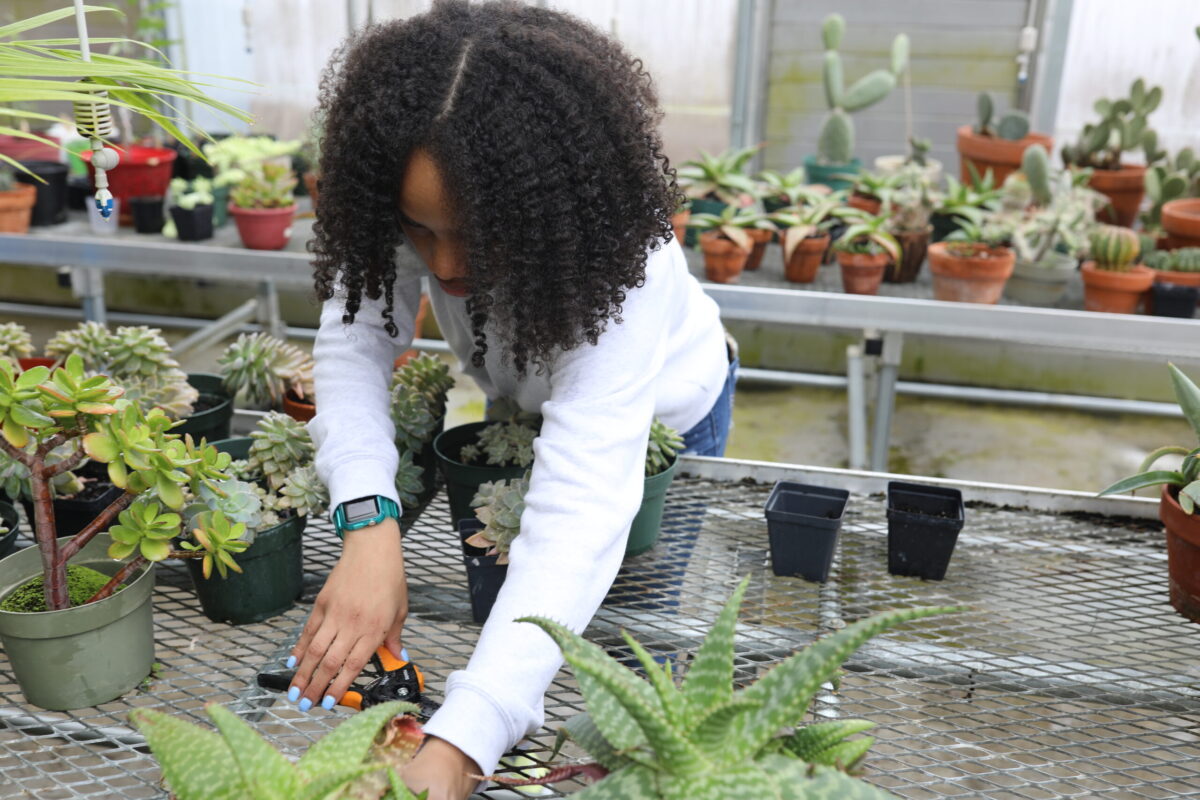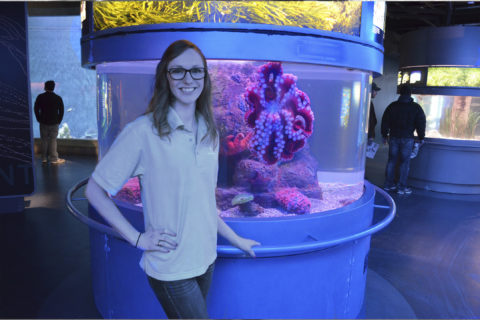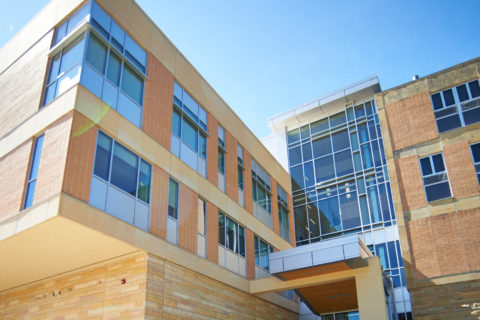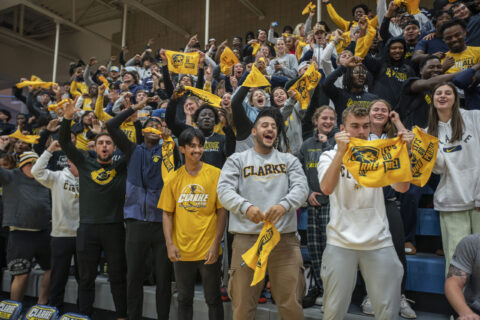Melissa DeMotta, Ph.D.
I hope that students learn to appreciate the world around them and the wonder of their own bodies so that they realize science is not scary but fantastic.
Biology is a rapidly expanding, widely diverse discipline, embracing all aspects of life. Biology is a natural science that involves the study of living organisms with a focus on their structure, formation, growth, distribution, taxonomy, and evolution. As a Biology major at Clarke University, you will have the opportunity to design your own experiments from the introductory course through your senior capstone course, using advanced equipment and unique techniques in our state-of-the-art biology laboratories. Clarke is viewed both locally in Iowa and nationwide as one of the best colleges for Biology. As you work to earn your BS in Biology or BA in Biology, our Biology Program provides a challenging yet supportive learning environment to foster your personal and intellectual growth. We educate our students to be scientifically literate as well as socially and environmentally responsible citizens. Majoring in Biology prepares students to pursue a career in research, teaching, or the allied health sciences. It is also relevant to careers as diverse as environmental policy, law, public health, creative writing, and textbook development.
While the Bachelor of Arts (BA) and the Bachelor of Science (BS) degrees in Biology share some common core courses, the BS degree requires a lab research class as well as more advanced supporting courses in math, chemistry, and physics. Most students who plan to continue in graduate or professional programs (for example, medical school, vet school, dental school, PA school, Ph.D. programs) or who plan to start their career with their undergraduate degree usually choose the BS degree. Many Biology BA degree-seeking students plan to continue at Clarke in its DPT program.
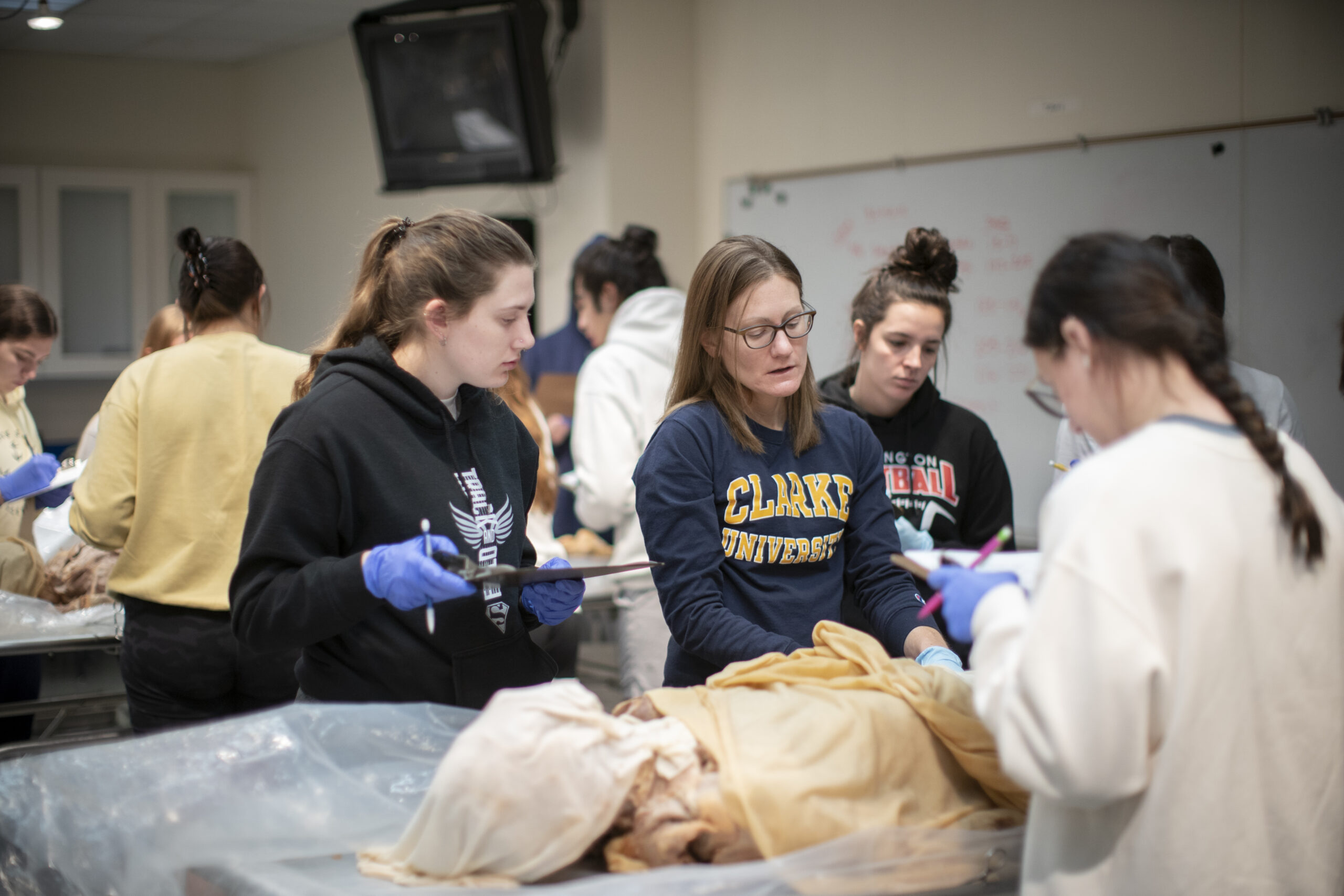
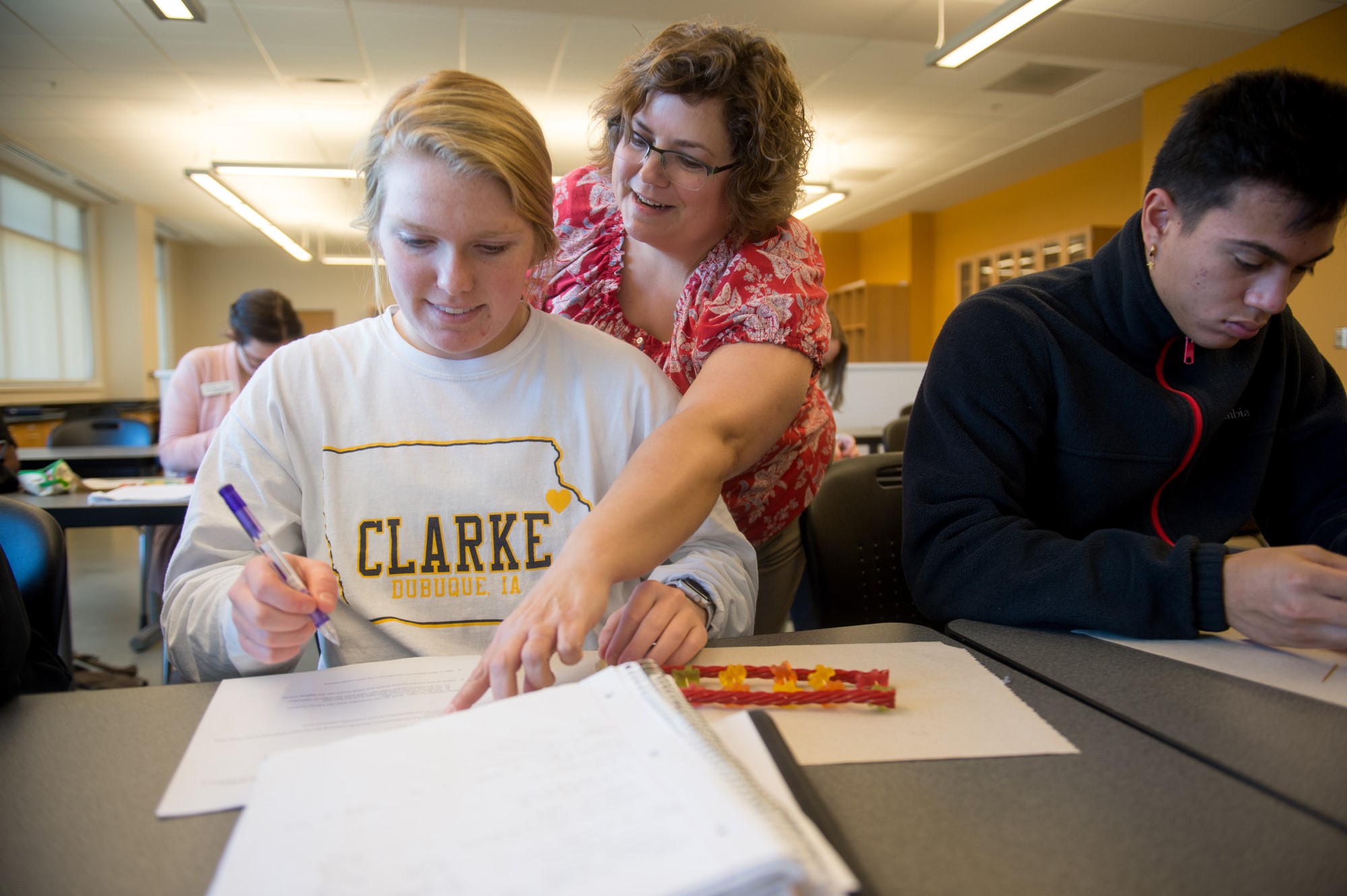
As a Biology Major, you will be:
Those seeking a bachelor’s degree in Biology will use Clarke’s 46,000-square-foot, three-story science building, the Marie Miske Center for Science Inquiry, which provides flexible and modern spaces designed to seamlessly integrate lecture and laboratory. Clarke offers the biology major a 10-table gross anatomy laboratory. This many cadavers in the lab increase the probability of finding the results of interesting surgical procedures and observing anomalies, which enhance learning. The greenhouse at Clarke is fully automated to consistently water plants and shade them on sunny days. This makes it easier to maintain a diverse array of plants for teaching and research.
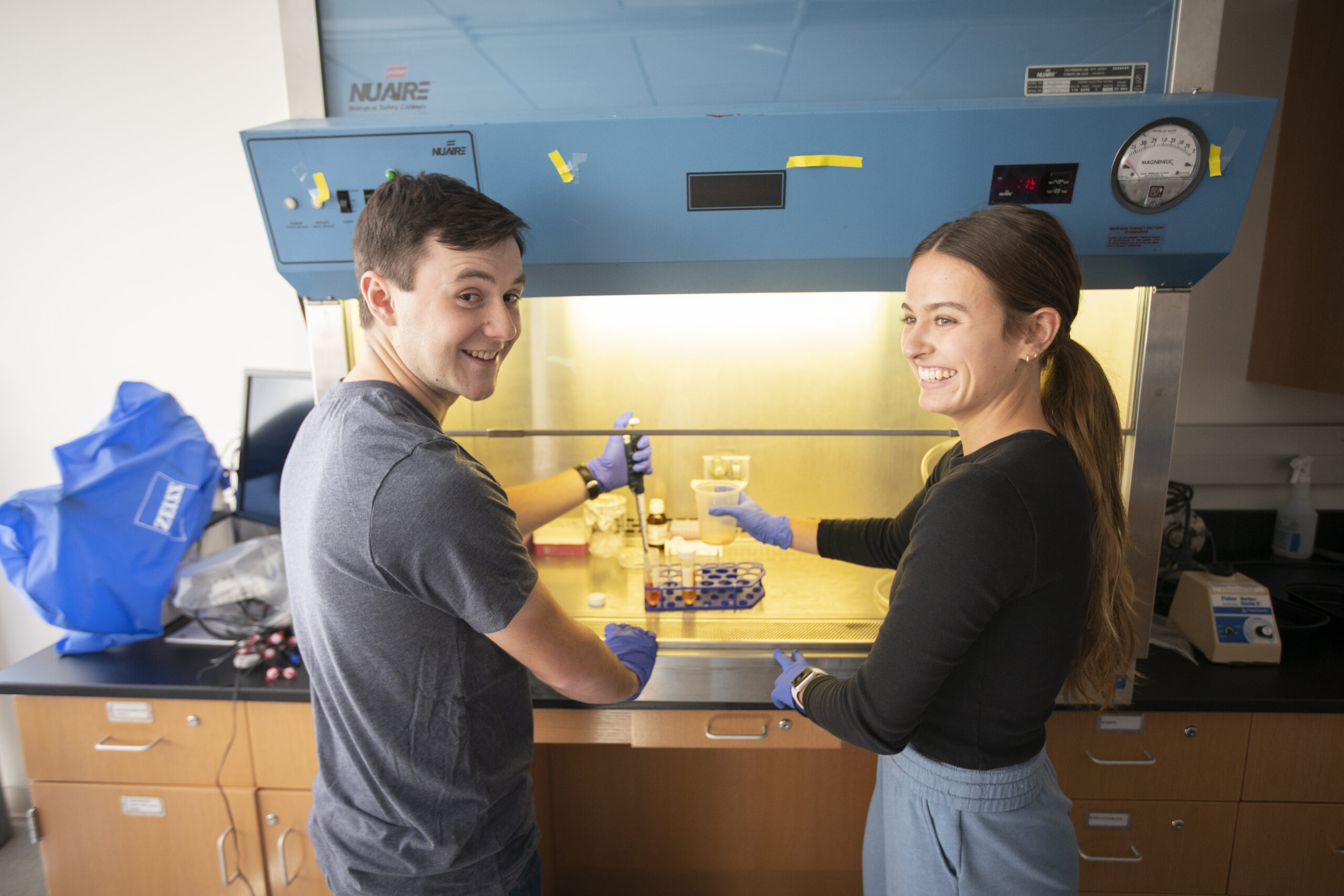
As a Biology major, you will develop skills important to the scientific process including hypothesis formation; critical reading of the scientific literature; and collection, interpretation, and dissemination of results. Your learning will be hands-on and visual. You will see and do, not just listen. In addition to 33 to 36 hours in class and performing lab work, students will produce a capstone project which may involve experimental lab or field research, or development of a research proposal.
Biology is an increasingly complex and thrilling field that incorporates other acute subdisciplines such as anatomy, pathology, ecology, chemistry, genetics, botany, and ecology. Medical and scientific modernism continue to drive biology into new and advanced directions. This indicates that your bachelor of science in Biology will focus on issues that influence human, animal, and plant life and include subjects like genetic engineering, transhumanism, GMO farming, and global climate change.
Your biology degree could lead to a career in academics, laboratory research, pharmaceuticals, or zoology, and more. A bachelor’s degree in biology is an essential educational beginning point if you eventually plan to practice a medical career. A biology degree provides you with the foundational knowledge and undergraduate credentials to enter both a medical profession or medical school.
Earn A Minor For Major Impact
Adding a minor to your resume is a great way to develop specialized skills and experience that help you stand out from the crowd when seeking a job. With a minor in Biology, you’ll gain a practical understanding of this core natural science and the research methods that are instrumental to success in a variety of fields. To earn a minor, you must complete 20 hours of Biology courses with at least a C-, including Biology 115 and 116, as well as additional higher-level courses of your choosing.
Internships
Nick Peterson ’20 is a biology major who recently completed an internship at the University of Iowa Carver College of Medicine. He had the unique experience of examining Drosophila (fruit flies) to study gene mutations found in patients with muscular dystrophy and lipodystrophy.
Study Abroad
Nicole Nelson ’19 is a Spanish and Biology major, so it was natural for her to spend fall 2018 in Madrid, Spain, where she took classes at St. Louis University, she volunteered with an organization for adults who have intellectual and developmental disabilities. “Studying abroad was one of the best decisions I have ever made! It pushed me to not only speak in another language but to think about and see things from the viewpoints of others,” Nicole says.
Clubs
The Biology Club is for Biology majors and well as other majors, and it participates in a wide range of activities, including a plant sale from which they donate the profits, hiking in a local state park, and educating the campus community through fun, hands-on activities. Students in the Hippo Society invite local health professionals to campus to talk about their educational and career pathways.
Applicants are considered on an individual basis. Apply to Clarke today to begin your journey.
Cool Classes as a Biology Major
FUNDAMENTALS OF CELL BIOLOGY AND GENETICS — Unifying concepts of biology, including cell structure and function, metabolism, and genetics.
SUBTROPICAL ECOLOGY — Travel to Florida for two weeks to study the subtropical ecosystems including the ocean.
HUMAN GROSS ANATOMY — Utilizing dissection as the major learning method, the fascinating and complex regions of the human body are studied.
Pretty Sweet Jobs
The type of career you select will determine whether you should take the Bachelor of Art or Bachelor of Science degree program, which varies slightly in course requirements. Career options for Clarke biology degree graduates include:
Biology Major Students Engaged in Hands On learning
Biology Majors in Cadaver Lab-Gross Anatomy Lab
Biology Major Students getting one on one professor instruction
Clarke University offers several faculty-sponsored study abroad experiences to destinations such as Spain, Scotland, Ireland, and Japan. Study abroad trips encourage you to experience different cultures, broaden your mind, and discover your own passions.
You will learn by observation and participation at off-campus laboratories or field settings through internships and experiential education ventures. Internships often facilitate entrance into the job market and are highly recommended for acceptance into some graduate programs.
Clarke’s modern science building and 10-table cadaver lab provide a unique and hands-on learning environment.
Life at Clarke is living traditions, being proud, participating in the campus community, and being an active member of our greater community.

My biology degree was critical for improving my understanding of the human body, so that I can better understand the anatomy and pathology needed to successfully treat my patients. My biology degree helped me tremendously throughout PT school, because I felt like I had a great foundation for scientific reasoning. I use my biology degree all day every day, especially when it comes to chart reviewing patients.
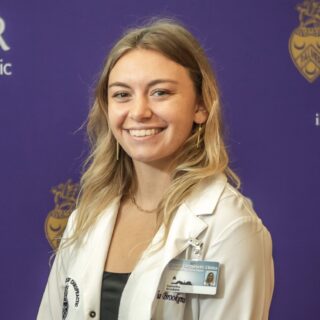
Whether I’m dissecting cadavers, tackling advanced anatomy and physiology, or getting hands-on with patients, my biology degree has been the backbone of my work as a chiropractor. Figuring out what’s going on with a person’s body can get tricky, and being able to think critically is super important to not miss anything crucial when diagnosing and working with patients. I owe a lot to Clarke and my time in undergrad, as I have learned a ton from amazing professors and classmates that I’ll carry with me.
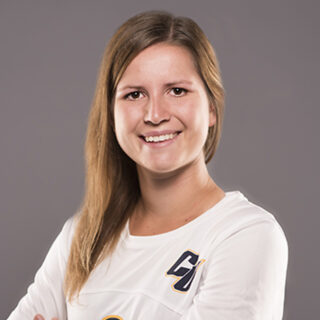
I have plans to cure cancer. I just completed a summer internship at the University of Minnesota researching cancer in rats. I want to be an epidemiologist (one who researches diseases).
Percent increase in the number of jobs for biologists from 2008 to 2018, according to the U.S. Bureau of Labor Statistics.
The median yearly wage earned by general biologists, according to the U.S. Bureau of Labor Statistics.
Work one-on-one with faculty on an undergraduate research project – an important criterion for entering graduate school.

